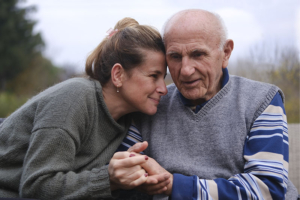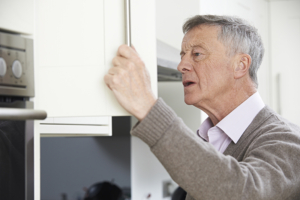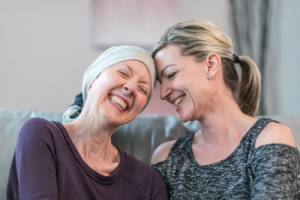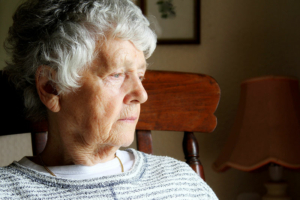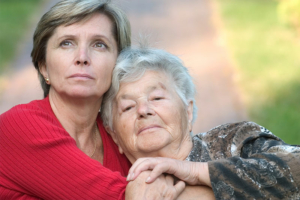
Find out your risk for inheriting Alzheimer’s, and the other factors in addition to genetics that come into play.
While you watch Mom having difficulty remembering your name or losing track of her daily routine, an unsettling thought might sneak into your mind: “Will I face this at some point too? Am I at risk for inheriting Alzheimer’s?” It’s normal to battle with the fear of facing similar issues as a senior loved one with Alzheimer’s or dementia. We invite you to take a breath and consider the following risk factors, facts, and causes of Alzheimer’s and dementia to help empower you to work through these fears in order to find some peace of mind.
Genetic Factors and Family History
One of the initial items to consider is the role of inherited genes. Alzheimer’s disease, the most common type of dementia, has a hereditary component. In accordance with the National Institute on Aging (NIA), people who have a family history of Alzheimer’s have a higher risk of developing the illness themselves. Still, it is important to remember that having a parent with Alzheimer’s doesn’t necessarily guarantee that you’ll get it as well.
Types of Alzheimer’s Disease
There are two kinds of Alzheimer’s: early-onset and late-onset. Early-onset Alzheimer’s disease, which appears between the ages of 30 and 60, can occasionally be associated with specific genetic mutations. These mutations are fairly rare and are usually passed directly from one generation to the next.
Late-onset Alzheimer’s disease, which arises after 60 years of age, is more common and also has a less clear genetic link. While genetics do play a role, other factors including environment and lifestyle are also noteworthy factors. Researchers are still examining the complicated interplay of these factors, however it’s believed that having a parent or sibling with Alzheimer’s slightly raises your risk.
Lifestyle and Environmental Issues
Although you can’t transform your genetics, you are able to change your lifestyle and environment. The same healthy practices that are best for your heart are also great for your brain. Participating in regular physical exercise, eating a healthy diet full of vegetables, fruits, and whole grains, and not smoking can all lower your risk.
Also, staying socially and mentally active is also fundamental. Activities that challenge your brain, like puzzles, reading, or learning new skills, helps build cognitive reserve. Maintaining strong relationships and social interactions help with brain health, so keeping your mind engaged and active can perhaps delay the start of dementia symptoms.
Monitoring and Preventive Measures
Being proactive regarding your health also can provide peace of mind. Routine check-ups with your physician can help keep track of your cognitive health. If you have questions about your memory or other cognitive functions, discussing these with your doctor can lead to early detection and treatment.
You might also want to consider genetic testing to ascertain your risk. Although this can offer some information, it’s essential to approach it with caution. Learning about your genetic predisposition may be a double-edged sword, as it can cause unnecessary anxiety. It’s important to talk about the possible positives and negatives with a genetic counselor or your health care provider before proceeding.
Resources and Support
If you are taking care of a loved one with dementia, understand that you’re not alone. Counseling and support groups can offer valuable information and emotional support. Taking care of your own mental and emotional health is equally as important as caring for your loved one.
Responsive Home Care is here to assist as well with an in depth library of resources to educate you and your family about Alzheimer’s as well as other forms of dementia. We also provide specialized dementia care services by highly trained, experienced, and skilled care professionals. Reach out to us at 954-486-6400 any time for more information on how we can help both you and your family member with dementia in Fort Lauderdale, Deerfield Beach, Plantation, and throughout Broward County.




